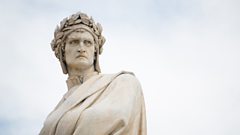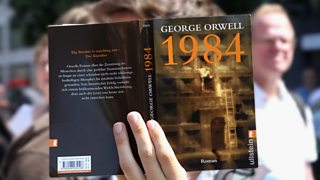Dante’s Inferno: The poetry of Hell
Inferno is the voyage through Hell written by Dante in 14th century Italy. Joining Rajan Datar is Dr Vittorio Montemaggi; Professor Claire Honess, and Professor Sangjin Park.
Inferno is the 14th century epic that tells the story of Dante Alighieri’s imaginary journey through the underworld. It is the first part of Dante’s The Divine Comedy, and is widely considered to be one of the world’s greatest poems. “Abandon all hope you who enter here” is the famous phrase inscribed on the gates of Dante’s Inferno, and Hell is divided into nine circles, with cruel and unusual punishments afflicting the sinners, who range from the lustful and cowardly in the upper circles to the malicious at the bottom of Hell. Joining Rajan Datar to explore Dante’s Inferno is Dr Vittorio Montemaggi, author of Reading Dante’s Commedia as Theology; Claire Honess, Professor of Italian studies at the University of Leeds, and Sangjin Park, Professor of Italian at Busan University of Foreign studies in South Korea, who will be speaking about the role Inferno played in shaping Korea’s national identity.
Photo: A visual interpretation of red hell-fire (Getty Images)
Last on
More episodes
Previous
Next
Clip
-
![]()
What lies at the very pit of Hell?
Duration: 01:43
Broadcasts
- Sat 24 Feb 2018 20:06GMT��ѿ��ý World Service except Australasia, East and Southern Africa, News Internet & West and Central Africa
- Tue 27 Feb 2018 00:06GMT��ѿ��ý World Service Australasia, Online, Americas and the Caribbean, Europe and the Middle East & UK DAB/Freeview only
- Tue 27 Feb 2018 09:06GMT��ѿ��ý World Service except News Internet
- Tue 27 Feb 2018 18:06GMT��ѿ��ý World Service Australasia
- Tue 27 Feb 2018 23:06GMT��ѿ��ý World Service East and Southern Africa, South Asia, West and Central Africa & East Asia only
Featured in...
![]()
Classic literature: Reading between the lines—The Forum
From Moby Dick to the Moomins, exploring the books that captured the world's imagination
What makes good customer service in the 21st century?
Podcast
-
![]()
The Forum
The programme that explains the present by exploring the past





